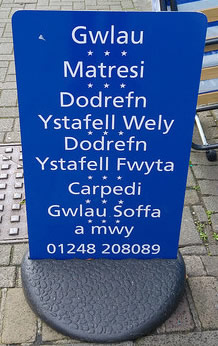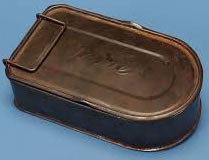An interesting new word I came across recently is sapiophile [seɪpɪofaɪl/sapiofaɪl]. When I first saw it I wasn’t sure what it meant, but as soon as I looked it up it made sense. It means “someone who is (sexually) attracted to intelligence / intelligent people” [source]. It comes from the Latin sapiō and the Ancient Greek φιλέω (phileō – I love) [source].
Sapiō is a form of sapiēns, as in homo sapiens, which means wise, discreet; wise man, philosopher, man of taste. Related words include sapienter (wisely, sensibly), and sapientia (wisdom, discernment; philosophy; knowledge).
The English word sapient (wise), comes from the Old French sapient, from the Latin sapientem (nominative sapiēns), the present participle of sapere (to taste, have taste, be wise), from the Proto-Indo-European root *sep- (to taste, perceive) [source]. Alternatively it comes from the Proto-Indo-European *sh₁p-i- (to notice), from the Proto-Indo-European *seh₁p- (to try, to research). This is also the root of words meaning to know in quite a few languages, including: savoir (French), sapere (Italian, Sardinian), saber (Portuguese, Spanish, Galician, Catalan, Asturian, Occitan), and of the English words to savour and savvy (shrewd, well-informed and perceptive) [source].
A number of women on dating sites say they are a saphiophile – that’s where I stumbled on the word. A lot of women on such sites are looking for someone who is genuine, which can mean various things, including “belonging to, or proceeding from the original stock; native; hence, not counterfeit, spurious, false, or adulterated; authentic; real; natural; true; pure” [source]. Which of these meanings is meant I’m not sure.
Genuine comes from the Latin genuinus (innate, native, natural), from gignere, from the Old Latin genere (to beget, produce), from the Proto-Indo-European *ǵénh₁os (race), from *ǵenh₁- (to produce, beget) [source].
So maybe I should mention on Match and POF that I’m seeking a savvy, single, multilingual saphiophile – try saying that a few times quickly, it’s a bit of a tongue twister.
On Match you can search for people by the language(s) they speak. So, for example, you could search for someone who speaks French, Welsh, Kazakh, Swahili, Nepalese, Chinese, Taiwanese, Esperanto, or quite a few other languages. The list of languages is a bit random and looks like users were able to enter languages at some stage, so it includes Bable (Asturian), Euskera (Basque), Chinese, Chinese Traditional, Gallero (?), Indian (?), Iranian (?), Mallorquin, Valenciano and Visayan (Cebuano).
There are currently 651 Welsh-speaking women on Match, for example, 65 Esperanto speakers, and 42 Taiwanese speakers. However, in your profile you can only choose three languages – on Plenty of Fish (POF) you can only choose one second language, and you can only search one language at a time. These sites are obviously not set up with polyglots in mind.


